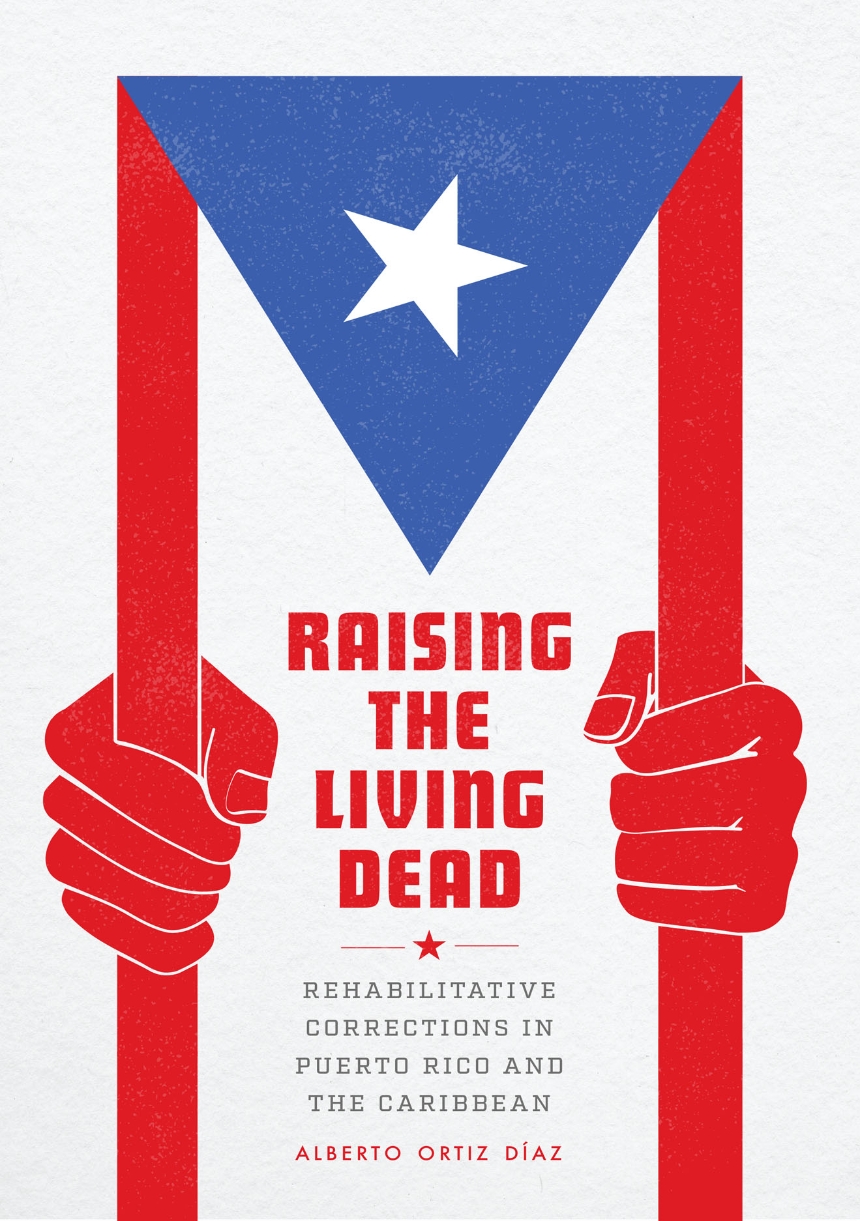Raising the Living Dead
Rehabilitative Corrections in Puerto Rico and the Caribbean
9780226824512
9780226824499
9780226824505
Raising the Living Dead
Rehabilitative Corrections in Puerto Rico and the Caribbean
An eye-opening look at how incarcerated people, health professionals, and others behind and beyond bars came together to problem-solve incarceration.
Raising the Living Dead is a history of Puerto Rico’s carceral rehabilitation system that brings to life the interactions of incarcerated people, their wider social networks, and health care professionals. Alberto Ortiz Díaz describes the ways that multiple communities of care came together both inside and outside of prisons to imagine and enact solution-oriented cultures of rehabilitation from the 1930s to the 1960s. Scientific and humanistic approaches to well-being were deliberately fused to raise the “living dead,” an expression that reemerged in the modern Caribbean to refer to prisoners. These reform groups sought to raise incarcerated people physically, mentally, socially, spiritually, and civically.
The book is based on deep, original archival research into the Oso Blanco (White Bear) penitentiary in Puerto Rico, yet it situates its study within Puerto Rico’s broader carceral archipelago and other Caribbean prisons. The agents of this history include not only physical health professionals, but also psychologists and psychiatrists, social workers, spiritual and religious practitioners, and, of course, the prisoners and their families. By following all these groups and emphasizing the interpersonal exercise of power, Ortiz Díaz tells a story that goes beyond debates about structural and social control.
The book addresses key issues in the history of prisons and the histories of medicine and belief, including how prisoners’ different racial, class, and cultural identities shaped their incarceration and how professionals living in a colonial society dealt with the challenge of rehabilitating prisoners for citizenship.
Raising the Living Dead is not just about convicts, their immediate interlocutors, and their contexts, however, but about how together these open a window into the history of social uplift projects within the (neo)colonial societies of the Caribbean. There is no book like this in Caribbean historiography; few examine these themes in the larger literature on the history of prisons.
Raising the Living Dead is a history of Puerto Rico’s carceral rehabilitation system that brings to life the interactions of incarcerated people, their wider social networks, and health care professionals. Alberto Ortiz Díaz describes the ways that multiple communities of care came together both inside and outside of prisons to imagine and enact solution-oriented cultures of rehabilitation from the 1930s to the 1960s. Scientific and humanistic approaches to well-being were deliberately fused to raise the “living dead,” an expression that reemerged in the modern Caribbean to refer to prisoners. These reform groups sought to raise incarcerated people physically, mentally, socially, spiritually, and civically.
The book is based on deep, original archival research into the Oso Blanco (White Bear) penitentiary in Puerto Rico, yet it situates its study within Puerto Rico’s broader carceral archipelago and other Caribbean prisons. The agents of this history include not only physical health professionals, but also psychologists and psychiatrists, social workers, spiritual and religious practitioners, and, of course, the prisoners and their families. By following all these groups and emphasizing the interpersonal exercise of power, Ortiz Díaz tells a story that goes beyond debates about structural and social control.
The book addresses key issues in the history of prisons and the histories of medicine and belief, including how prisoners’ different racial, class, and cultural identities shaped their incarceration and how professionals living in a colonial society dealt with the challenge of rehabilitating prisoners for citizenship.
Raising the Living Dead is not just about convicts, their immediate interlocutors, and their contexts, however, but about how together these open a window into the history of social uplift projects within the (neo)colonial societies of the Caribbean. There is no book like this in Caribbean historiography; few examine these themes in the larger literature on the history of prisons.
272 pages | 11 halftones | 6 x 9 | © 2023
History: Latin American History
Law and Legal Studies: Law and Society
Reviews
Table of Contents
Preface
Introduction: Toward a Holistic History of Incarceration
1 Under a Microscope: Convict Bodies and Prison Biomedicine
2 To Classify and Treat: Correctional Psychology and Psychiatry
3 Interactional Care: Social Workers, Parole Officers, and Social Rehabilitation
4 More Than Flesh: Sacred Knowledge and Experiential Healing
5 In Pursuit of Awakening: Carceral Therapeutic Humanities
6 Health Activism: Executive Clemency on the Mona Passage
Conclusion: A Rehabilitative Dream Turned Punitive Nightmare
Acknowledgments
Notes
Bibliography
Index
Introduction: Toward a Holistic History of Incarceration
1 Under a Microscope: Convict Bodies and Prison Biomedicine
2 To Classify and Treat: Correctional Psychology and Psychiatry
3 Interactional Care: Social Workers, Parole Officers, and Social Rehabilitation
4 More Than Flesh: Sacred Knowledge and Experiential Healing
5 In Pursuit of Awakening: Carceral Therapeutic Humanities
6 Health Activism: Executive Clemency on the Mona Passage
Conclusion: A Rehabilitative Dream Turned Punitive Nightmare
Acknowledgments
Notes
Bibliography
Index
